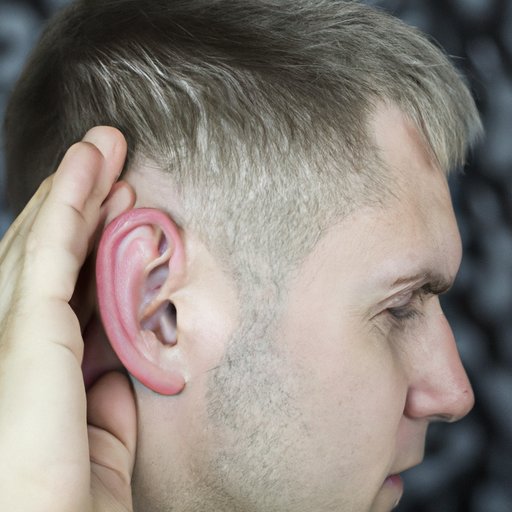
I. Introduction
If you’ve ever experienced ringing, buzzing, or humming in your ears that no one else can hear, you’re not alone. Known as tinnitus, this condition affects millions of people worldwide, making it difficult to concentrate, sleep, and enjoy daily life.
The purpose of this article is to provide practical tips for managing tinnitus so that you can alleviate your symptoms and regain your quality of life.
II. What is Tinnitus?
Tinnitus is a condition characterized by the perception of sound in the ears or head when no external sound is present. This sound can vary in pitch, volume, and frequency, and it can be constant or intermittent.
Tinnitus can be caused by a variety of factors, including exposure to loud noises, aging, earwax buildup, and certain medical conditions.
There are two types of tinnitus: subjective and objective. Subjective tinnitus is the most common and is only heard by the individual experiencing it. Objective tinnitus is rare and can be heard by others through a stethoscope or other listening device.
Regardless of the type, tinnitus can affect both the brain and hearing. When left unmanaged, it can lead to anxiety, depression, and cognitive decline.
III. Remove The Triggers
One of the most effective ways to manage tinnitus is to remove or decrease exposure to the triggers that cause it. Common triggers include loud noises, caffeine, alcohol, and nicotine.
If your tinnitus is triggered by loud noises, consider using earplugs or noise-canceling headphones in noisy environments. If caffeine exacerbates your symptoms, try reducing your intake or switching to decaf. Likewise, if alcohol or nicotine affects your tinnitus, consider cutting back or quitting altogether.
IV. White Noise
White noise is a type of sound that can mask or drown out tinnitus and help you relax. Common examples of white noise include fans, air purifiers, and white noise machines.
To incorporate white noise into your sleep routine, consider using a white noise machine or a sleep app on your phone. Choose a sound that you find soothing and set the volume to a level that’s comfortable for you. It may take some experimentation to find the right level and sound that works best for you.
V. Homeopathic Remedies
Some people find relief from tinnitus by taking homeopathic remedies such as ginkgo biloba and zinc supplements. While the effectiveness of these remedies is still being studied, some studies have shown promising results.
It’s important to note that not all homeopathic remedies are created equal. It’s essential to consult with a healthcare provider before taking any new supplements, as some may interact with other medications you’re taking or have harmful side effects.
VI. Essential Oils
Essential oils, such as lavender and lemon, have been shown to help reduce tinnitus symptoms in some individuals. To use essential oils safely, mix a few drops with a carrier oil, such as coconut or jojoba oil, and apply to the back of your neck or behind your ears. You can also add oils to a diffuser or inhale directly from the bottle.
It’s important to note that essential oils are not a cure for tinnitus and should be used in conjunction with other management techniques.
VII. Hearing Aids
Hearing aids are devices designed to improve hearing and can potentially reduce tinnitus symptoms. By amplifying sounds around you, hearing aids can help distract from tinnitus and make it easier to focus on external sounds.
While hearing aids can be expensive and may not work for everyone, they are worth considering if you have hearing loss in addition to tinnitus. Consult with an audiologist to determine if hearing aids are a good option for you.
VIII. Involve Your Physician
In cases of severe or chronic tinnitus, it’s essential to seek medical guidance from a healthcare provider. Your physician may recommend treatments such as cognitive-behavioral therapy, medication, or sound therapy to help manage your symptoms.
When discussing your tinnitus with your healthcare provider, be sure to provide as much information as possible about your symptoms, triggers, and current management techniques. This will help your provider develop a treatment plan that’s tailored to your needs.
IX. Conclusion
Tinnitus can be a challenging condition to manage, but with the right techniques and support, it is possible to alleviate symptoms and regain your quality of life.
By removing triggers, incorporating white noise, trying homeopathic remedies and essential oils, considering hearing aids, and involving your physician, you can find the management strategy that works best for you.
Remember to be patient and persistent in your efforts. Tinnitus management is often a trial-and-error process, and what works for one person may not work for another. With time and effort, however, you’ll find the strategies that help you manage your symptoms and improve your overall well-being.




